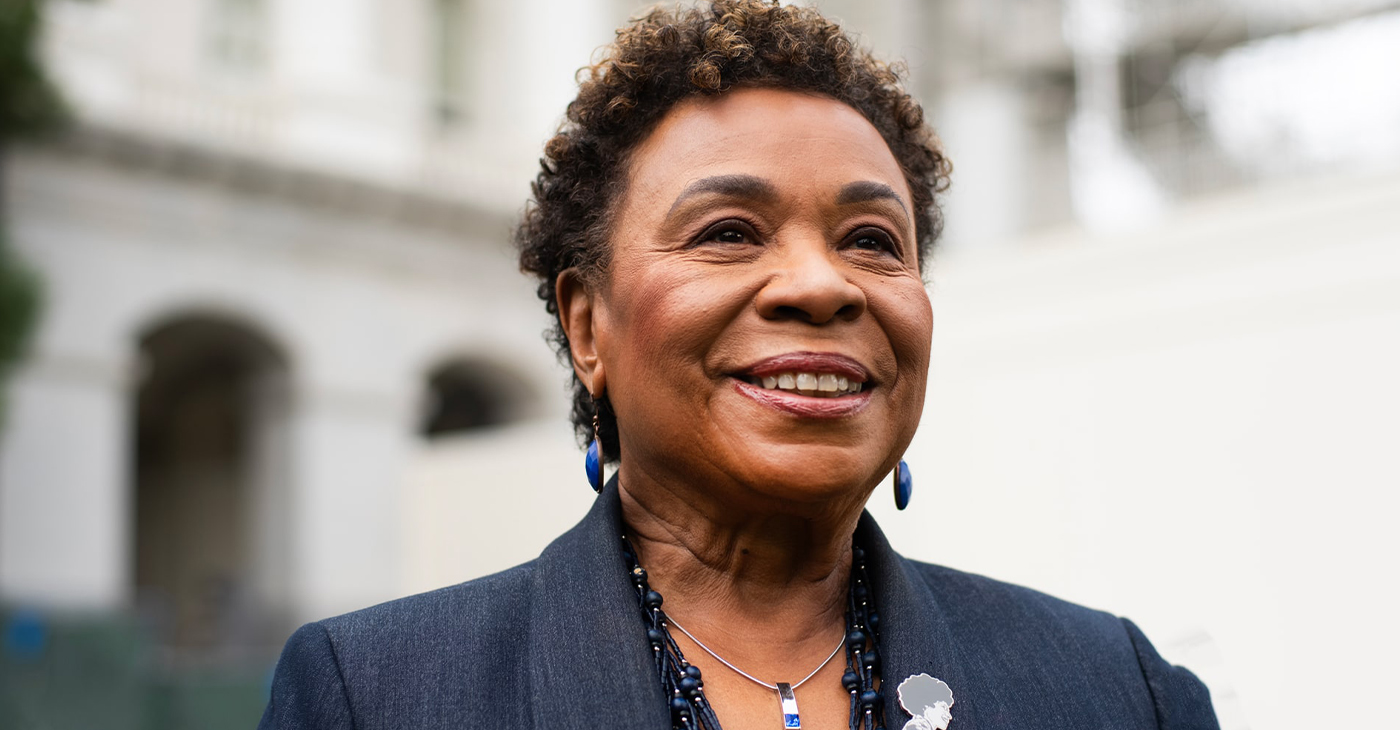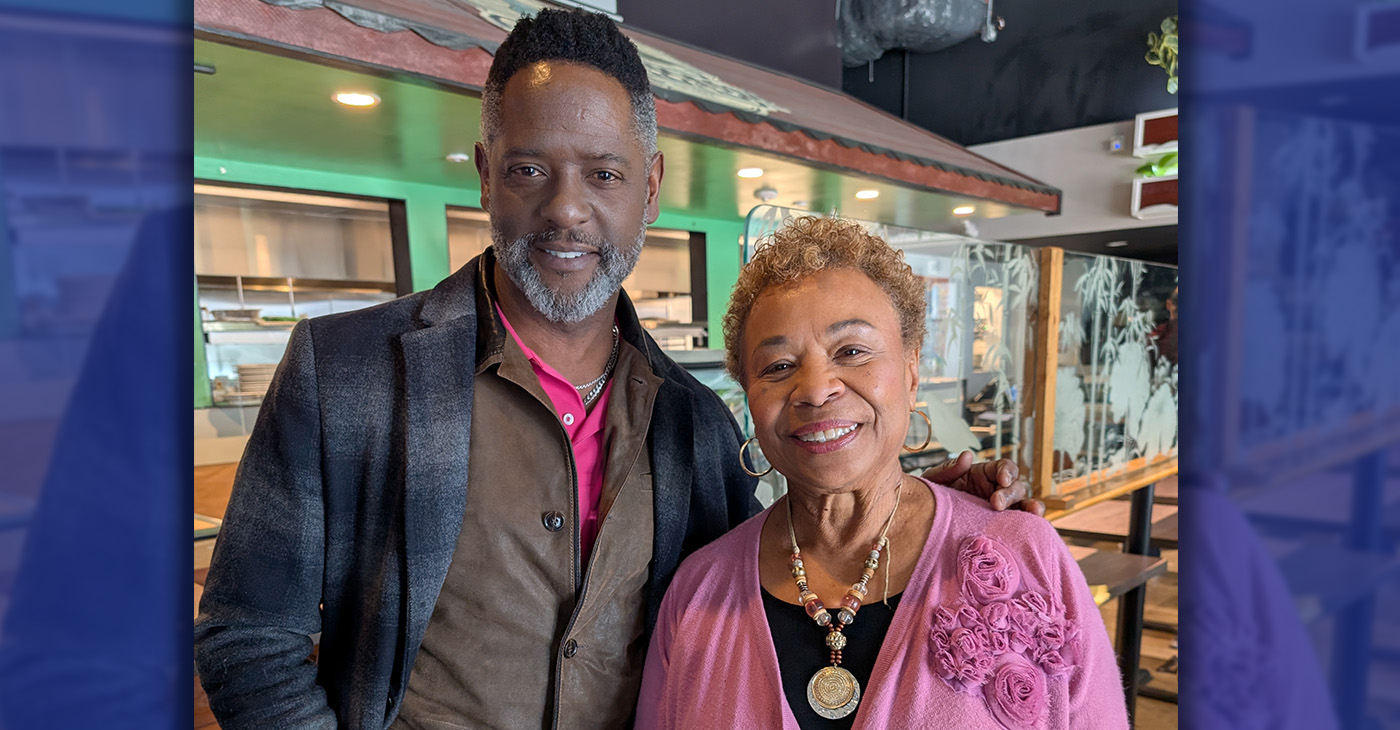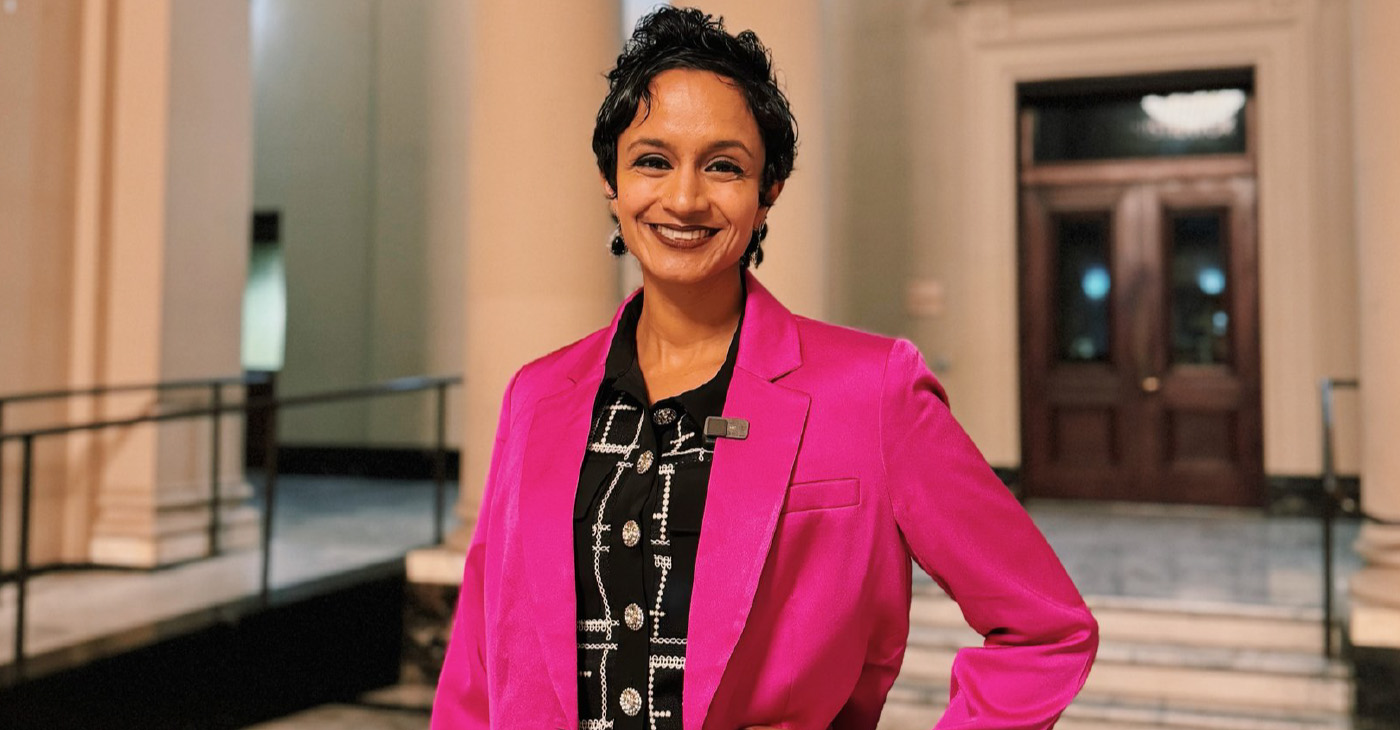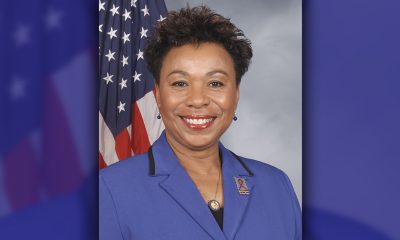Op-Ed
Child Watch: Low-Income Children Get Shafted
By Marian Wright Edelman
NNPA Columnist
Congress is about to strike a deal that takes care of seniors and doctors but leaves low-income and “at-risk” children short. Congress’ annual struggle to avoid cuts in Medicare reimbursement rates so physicians will continue to give seniors the care they need is widely considered must-pass bipartisan legislation. Known as the Sustainable Growth Rate (SGR) or “doc fix,” this annual process often provides a vehicle for moving other legislative health priorities.
Last year, it included one year of funding for the important Maternal and Infant Early Childhood Home Visiting program. While Congress has long discussed passing a permanent “doc fix” – leaders in the House of Representatives have now released an outline for doing it and plan to act on it this week. They hope the Senate will follow and act before the current “doc fix” expires March 31.
This is great news for seniors, but why is Congress leaving children behind by extending funding for the successful bipartisan Children’s Health Insurance Program (CHIP) and the Maternal and Infant Early Childhood Home Visiting Program (MIECHV) for only two years? The cost of the “doc fix” is about $140 billion, while a two-year extension of CHIP and home visiting funding is less than $6 billion. Yet in the House proposal this increase required an “offset” – meaning it had to be paid for, while the “doc fix” that is more than 20 times more expensive does not. This is profoundly unjust to children whose lives are equally important.
A clean four-year CHIP funding extension and four years of funding for home visiting must be included in any final “doc fix” package. Certainly, the price tag is not the obstacle. Funding for CHIP and home visiting for four years is expected to add up to less than $12 billion to serve millions of vulnerable children, a critical investment in the health of lower-income children.
Today, more than 8 million children depend on CHIP for health coverage. Together with Medicaid, CHIP has played a vital role in bringing the number of uninsured children to the lowest level on record. Simply put, CHIP is a bipartisan success story. But if funding is not extended quickly, up to 2 million children could become uninsured, and millions more would have to pay significantly more for less comprehensive coverage. This would reverse the progress made over the past two decades and create a health coverage gap among children in working families.
The vast majority of governors, both Democrats and Republicans, share our concerns about CHIP funds expiring abruptly. They are concerned about higher costs and inadequate benefits for children, budget challenges to cover children without CHIP, and an increase in uninsured children if CHIP funding ends.
The Children’s Defense Fund strongly supports a clean four-year extension of CHIP through 2019 because the new health insurance exchanges need at least four years to make changes to ensure children have comparable pediatric benefits with costs to families no higher than in CHIP today. It is highly unlikely these improvements will be enacted and implemented by 2017.
CHIP coverage saves money for states and the federal government. It is more efficient than private health insurance, costs less than subsidized exchange coverage and provides the comprehensive coverage that gives children and families access to the pediatricians, specialists and special facilities children need.
Four years of funding for the Maternal and Infant Early Childhood Home Visiting program is also a bargain. It brings quality home visiting to children and parents in every state and the District of Columbia and has bipartisan roots. Quality voluntary home visiting programs implement a two-generation strategy in which preschool children under age five and their parents benefit by being connected to community resources. MIECHV will end March 31 if funding is not extended. A four year extension will allow states to expand their programs and reach many more children.
Almost 80 percent of families participating in the MIECHV program had household incomes at or below 100 percent of the Federal Poverty Line. As in CHIP, where states have flexibility to craft their programs, states that receive MIECHV funding can tailor their programs to serve the specific needs of their communities but have to meet certain benchmarks.
Congress must stop playing politics with children and pass four more years of funding for CHIP and MIECHV as part of the “doc fix” package if millions of children are not to be left with uncertainty and at greater risk. We need to ensure our children are healthy, supported, and strong if they are going to be able to support our growing number of seniors in the future.
Marian Wright Edelman is president of the Children’s Defense Fund whose Leave No Child Behind® mission is to ensure every child a Healthy Start, a Head Start, a Fair Start, a Safe Start and a Moral Start in life and successful passage to adulthood with the help of caring families and communities. For more information go to www.childrensdefense.org.
###
Activism
Oakland Post Endorses Barbara Lee
Barbara Lee will be able to unify the city around Oakland’s critical budget and financial issues, since she will walk into the mayor’s office with the support of a super majority of seven city council members — enabling her to achieve much-needed consensus on moving Oakland into a successful future.

As we end the celebration of Women’s History Month in Oakland, we endorse Barbara Lee, a woman of demonstrated historical significance. In our opinion, she has the best chance of uniting the city and achieving our needs for affordable housing, public safety, and fiscal accountability.
As a former small business owner, Barbara Lee understands how to apply tools needed to revitalize Oakland’s downtown, uptown, and neighborhood businesses.
Barbara Lee will be able to unify the city around Oakland’s critical budget and financial issues, since she will walk into the mayor’s office with the support of a super majority of seven city council members — enabling her to achieve much-needed consensus on moving Oakland into a successful future.
It is notable that many of those who fought politically on both sides of the recent recall election battles have now laid down their weapons and become brothers and sisters in support of Barbara Lee. The Oakland Post is pleased to join them.
Activism
Actor, Philanthropist Blair Underwood Visits Bay Area, Kicks Off Literacy Program in ‘New Oakland’ Initiative
These community activations were coordinated with the San Francisco-based non-profit program “Room to Read.” Ray said he is also donating his time to read and take pictures with students to encourage their engagement and to inspire them to read more. The inspirational book “Clifford Ray Saves the Day” highlights Clifford Ray’s true story of saving a dolphin.

By Paul Cobb
New Oakland Series
Opinion Part 3
The Post mentioned three weeks ago that a number of our local luminaries were coming together to support the “New Oakland” movement. As this current national administration continues to eliminate our “legacy” institutional policies and programs left and right, most communities find themselves beyond “frozen” in fear.
Well, esteemed actor, long-time Bay Area supporter, and philanthropist Blair Underwood returned to Oakland this week to speak with city leaders, community trust agents, students, the Oakland Post, and local celebrities alike to continue his “New Oakland” initiative.
This week, he kicked off his “Guess Who’s Coming to Read” literacy program in some of Oakland’s middle schools. Clifford Ray, who played the center position of the 1975 World Champion Golden State Warriors, donated close to 1,000 books. Ray’s fellow teammate Charles “The Hopper” Dudley also gave Converse sneakers to students.
These community activations were coordinated with the San Francisco-based non-profit program “Room to Read.” Ray said he is also donating his time to read and take pictures with students to encourage their engagement and to inspire them to read more. The inspirational book “Clifford Ray Saves the Day” highlights Clifford Ray’s true story of saving a dolphin.
Underwood also spent quality time with the Oakland Ballers ownership group and visited the amazing Raimondi Park West Oakland community revitalization site. In the 1996 TV film Soul of the Game, Underwood played the role of the legendary first Black Major League Baseball player Jackie Robinson and commended the Ballers owners.
“This group of sports enthusiasts/ philanthropists needs to be applauded for their human capital investment and their financial capital investment,” Underwood said. “Truly putting their money and passion to work,” Underwood said.
Underwood was also inspired by mayoral candidate Barbara Lee’s open-minded invitation to bring public-private partnership opportunities to Oakland.
Underwood said he wants to “reinforce the importance of ‘collaborative activism’ among those most marginalized by non-empathic leadership. We must ‘act out’ our discomfort with passionate intentions to create healthy change.”
Activism
Councilmembers Ramachandran, Kaplan, Unger Identify Funds to Save Oakland Fire Stations
Our budget crisis – one of the worst in Oakland’s history – is compounded by the fact that people do not feel safe coming to Oakland due to our public safety crisis. By investing in our fundamental public safety resources today, we can send a signal to the world that Oakland is open for business. We have such a rich and vibrant culture, arts, and food scene that is worth celebrating – but we can only showcase this if we are able to keep our neighborhoods safe. Having fully functioning fire stations are absolutely essential to these efforts.

By Janani Ramachandran
There is no greater concern to the people of Oakland today than public safety. Fire stations are the bread and butter of essential city services – and every day that we have stations shuttered, we imperil the lives of our community members. In response to widespread outcry over the current and planned closure of stations, myself, along with Councilmembers Kaplan and Unger, have painstakingly worked to identify millions of dollars of new funding to save our stations. The legislation we introduced on Thursday, February 13th, will amend our budget to prevent the closure of four fire stations that are currently on the chopping block due to our budget crisis and will re-open two closed stations that have already been closed – Station 25 and 28 – in the near future. The resolution that will provide the funding to keep our stations open will go before the full City Council for a vote at our meeting on Tuesday, March 4th at 3:30 PM – and we invite you to join us at City Hall to share your perspective on the topic.
Our budget crisis – one of the worst in Oakland’s history – is compounded by the fact that people do not feel safe coming to Oakland due to our public safety crisis. By investing in our fundamental public safety resources today, we can send a signal to the world that Oakland is open for business. We have such a rich and vibrant culture, arts, and food scene that is worth celebrating – but we can only showcase this if we are able to keep our neighborhoods safe. Having fully functioning fire stations are absolutely essential to these efforts.
With the devastating Los Angeles fire at the top of people’s minds, terrible memories of Oakland’s own wildfires are re-surfacing from the 1991 Oakland Hills Firestorm to the Keller fire just a few months ago – and how essential fire stations are to mitigating these catastrophes. But in Oakland, our fire stations don’t just fight wildfires – they also provide emergency medical services to our most vulnerable constituents, put out structural fires and encampment fires, and much more.
We recognize that there are a number of competing interests and important initiatives fighting for sparse City resources. But from my perspective, core safety services are the most pivotal functions that a City must spend its resources on – especially given the outcry we have heard around fire stations.
The fight to save our stations is not over. The resolution we introduced is a critical first step, and there are hurdles to overcome. If you support keeping our fire stations open, we invite you to be a part of the solution by making your voice heard at the March 4th City Council meeting at 3:30 pm.
-

 Activism3 weeks ago
Activism3 weeks agoOakland Post Endorses Barbara Lee
-

 Activism4 weeks ago
Activism4 weeks agoOakland Post: Week of March 28 – April 1, 2025
-

 Activism3 weeks ago
Activism3 weeks agoOakland Post: Week of April 2 – 8, 2025
-

 #NNPA BlackPress3 weeks ago
#NNPA BlackPress3 weeks agoTrump Profits, Black America Pays the Price
-

 Activism2 weeks ago
Activism2 weeks agoOakland Post: Week of April 9 – 15, 2025
-

 #NNPA BlackPress3 weeks ago
#NNPA BlackPress3 weeks agoHarriet Tubman Scrubbed; DEI Dismantled
-

 #NNPA BlackPress3 weeks ago
#NNPA BlackPress3 weeks agoLawmakers Greenlight Reparations Study for Descendants of Enslaved Marylanders
-

 #NNPA BlackPress3 weeks ago
#NNPA BlackPress3 weeks agoTrump Targets a Slavery Removal from the National Museum of African-American History and Culture























































